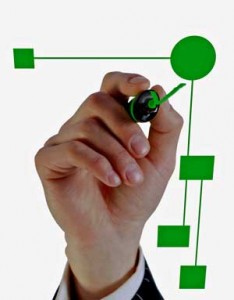Creating a Supplement Program for ME/CFS or Fibromyalgia That Works – Pt. II

In part II we discuss how to build a nutritional plan that “works”. By works, I mean that if our health improves – great, if it doesn’t then we can walk away knowing we’ve given it our best shot.
The Problem – Information Overload in the Supplement Field
I haven’t used supplements on a consistent basis in decades for two reasons: the field is so big and so complicated that I don’t know where to start and I have to be careful of costs.

The Synergy ME/CFS drug trial underway that is combining low doses of methylphenidate with a supplement that assists with energy metabolism and immune functioning caught my attention. If the trial is successful (and I just heard from someone who did very well on it) it will indicate some supplements may be able to greatly enhance a prescription drug’s effectiveness.
[The Synergy trial, by the way, is now fully enrolled. It will be finished by the end of this year and preliminary results will be available early next year. If you want to know them as soon as they are released send an email to d.adolphs@kpaxpharm.com.]Since I think casual supplementation is a waste of money, and I don’t have the expertise to do other than casual supplementation, and the last thing I want to do is waste money, the result has been that I don’t do anything significant with supplements – for decades … not a great outcome.
Solution: Step One – Find an Expert

- Efficiency and cost-savings. If I’m going to spend precious resources on supplements I don’t want to any money to be wasted. I also don’t want to spend time taking “X” supplement only to find out later that it was not the right supplement or I was taking the wrong form of it or a crummy brand or whatever.
- Leaving no stones unturned – I have my best chance – really my only chance – of covering all the bases in the vast and rapidly changing field of supplements and nutrition with an expert (hopefully an expert on ME/CFS and FM). If the supplement program doesn’t work out I want to leave it knowing that I’ve given it the best shot I can.
Step Two – Devise a Good Monitoring System to Assess Progress
Since the effects of supplements can at first be subtle, and because they can take some time to show themselves, and because they are going to add a significant expense it’s important for me to be able to monitor the effects they and other factors are having in my life. Dr. Craig calls this “biohacking”. That means I’m going to need some monitoring tools.
- Check out Dr. Craig’s blog on biohacking ME/CFS.
Tools to Biohack ME/CFS or Fibromyalgia

The FibroMapp app for Google Android phones would allow me to assess the effects of supplements and other variables (sleep, exercise, stress, diet) on my overall health. It also would allow me to create a journal of my day to day experiences and produce reports that my expert could look over. It’s also very affordable. It’s another essential for me. (An iPhone/iPad version will be available soon.)
A Pedometer – that measures the amount of walking I do would be important, particularly since I often overstress myself walking the dogs. A FitBit activity tracker would do well.
A Sleep Monitor – A a sleep monitor would be ideal for people who want to see how supplements or any other factors are affecting their sleep. Lifehacker has a list of good sleep monitors here.
I think I would go with the FitBit One Wireless Sleep and Activity Tracker since it tracks both sleep and activity.
(Why not, since I’m finally starting to measure all this stuff, incorporate a recumbent anaerobic exercise program and a meditation program into it all and see how those affect my health? I’m beginning to wonder why I didn’t do this years ago.)
Early Warning Systems
Some sort of early warning system that alerts me to the fact that I’ve pushed myself too far or taken something that is not good for me would be a must for me, particularly since I regularly tend to push myself too far, which could confound the results of a supplement trial.
My guess is that using a tool that assesses some aspect of physiological functioning is probably better than asking yourself how you feel this morning.
You can put also put the data from them into reports and take the reports to the doctor’s office. Doctors are far more inclined to listen if you can give them quantitative data.
Some Early Warning Tools
A Heart Rate Monitor – Monitoring my wakening heart rate would help me to determine when I’ve overdone it the day before. It would also ensure that I don’t raise my heart rate too much during my “exercise” periods.
For more on determining your optimal heart rate check out our Exercise Resource Center for Chronic Fatigue Syndrome (ME/CFS) and Fibromyalgia
The Polar FT4 gets pretty good reviews and they’re relatively “cheap”. I would probably pick up one of them.
There’s also the Garmin Vivofit Fitness Band that measures your activity levels, monitors your sleep and is a heart rate monitor as well!
Luminosity App – Damien Blenkinsopp, an expert in using data analysis to improve performance in business, has been using various tools to assess what works best for his case of Chronic Fatigue Syndrome. He uses a Luminosity app to assess his brain functioning every day. The app indicates to him that his attention span and problem solving abilities go down when he overexerts or has other issues that affect his health.
- Check out Dr. Craig’s talk with Damien Blenkinsopp
A Heart Rate Variability app – helps Damien chart how stress knocks his autonomic nervous system functioning off. When his HRV starts going down he knows he needs to take a day off to prevent more problems from cropping up. I think they’re a great idea but they’re pretty expensive. The app for the iPad is about $129 and for Windows is about $199. I will put those aside for now.
- Check out an interesting interview Dr. Craig did with Damien here.
Conclusion

For me I would get a Smartphone ($60), the FibroMapp app ($2.99), the activity and sleep monitor ($90) and a heart rate monitor ($60) (or I might just get the Garmin Fitness Band ($169)). Total outlay so far (not counting expert help) – about $220.
Because I want an expert and because Dr. Courtney Craig is not only an expert in supplements and nutrition, but also recovered from ME/CFS using supplements and other approaches, I decided to ask her about her approach to nutrition and ME/CFS and FM. That’s coming up in Part III of this supplement series.
- Part I: Five Supplement Mistakes You Don’t Want to Make With Chronic Fatigue Syndrome and Fibromyalgia
- Part III: Dr. Craig on a nutritional approach to ME/CFS and Fibromyalgia
(Health Rising receives a portion of all Amazon.com sales done through the website. To search for products in the U.S, Canada or the UK, go to this page, insert your product in the search box and click “go”.)







Great blog series, I spend a lot on supplements so information about what to take and when was really helpful. I also appreciate the info on available apps and other products.
Thanks for all your diligent research on this topic as well as for your on-going dedication to helping the CFS/ME/Fibro community!
Thanks Wendy! 🙂
Cort,
Thanks for this timely article. I have just started some new supplements and its pretty overwhelming. I share your concern about the costs, which at $100 monthly for several supplements adds up pretty quickly. My technical skills are poor, which has been a problem with some of these gadgets that I can’t seem to get going. I look foward to the next installment.
The learning curve is steep for me with this stuff as well. (I think I missed the “tech gene” :).
We’ll see how it goes but hopefully I’ll be able to start the program in Spring…
Please tell us how your program works out for you, Cort. I have tried various supplements based on research studies (for fibro) and found none helpful. I take 4000 iu of D3 per day because research shows FM folks have lower D levels but no one knows cause-effect and I’ve found no difference if I let it wash out over time. Maybe an expert will be helpful. I daily do a great old cardio/strength video I’ll PM you if you like where you can steam online free or download, 30 years old and still best, don’t want to post site here.
Benson proved decades ago that meditation should be done by all. To my embarrassment as a psychologist and despite getting dozens of patients to do it, I don’t. Can’t really use caffeine and meditate but without my 12 oz of coffee each AM…wouldn’t be able to get up and moving.
As an aside, have gone up to 3.5 mg daily of ldn with increased pain and no positive results, held today’s dose. A poorly understood med with no good prescribing protocol.
Good luck.
I think – I hope I’ll be ready to start the program in Spring. I’d love to see that video.
You’re not alone with the meditation stuff. Toni Bernhard meditated religiously before she got sick and then it took her seven years before she even took up mindfulness practices again. I’d don’t know if she’s doing any meditating.
No good on LDN yet. In fact, increased pain…..not the hoped for outcome, for sure.
I have to wonder if incorporating a recumbent anaerobic exercise program and a meditation program at the same time is wise? How would one know which new program is working for one? The supplements may do diddly squat and any improvement may be due to either the exercise program or the meditation or the improved monitoring/pacing. One could end up spending thousands to maintain a supplement program when the benefit is actually coming from any one of the other changes initiated.
Good point and I don’t know if I’m going to do either…It’s an idea at this point…I think you’re right that it’s not good to add everything in at once. Certainly if I saw improvement I would pull back on some stuff in the future and see how it affected me.
As I noted earlier I would hope to get this started in the Spring. Next I talk to Dr. Craig about testing and some nutrients.
Steve,
for my small fibre neuropathic pain I take Lyrica 300 mg and Cymbalta 60 mg a day. They certainly help me sleep (the pain used to keep waking me) and reduce pain through the day. However, I have found I must also stay in the airconditioning and use cold packs on my burning hot toes when out in the heat.
I’ve never used ldn and don’t intend to. Like you, I also think it could be based on faulty understanding.
Cort, thanks for this post and for all the ones before it. I follow you everyday.
cheers, Lynne
Thanks Lynne!
(Glad I don’t have SFN!)
Thanks for recos, Lynne. I’m not sure I have that FM subtype. I wear wool socks 24/7, two pairs in winter, due to freezing/crushing neuro feet, maybe not small fibre but CNS mediated. I took 20 mg Cymbalta, got 20% reduction in foot pain overnite, almost made me believe in miracles but if you are an aging male with standard male problems, anticholinergics will totally ruin your day. I cut the cap in half and tried it, some pain relief but still dangerous urinary side effects. When you start looking, you will be astounded at how many meds have anticholinergics effects.
I had high hopes for ldn, lots of true believers, but it caused me intense pain in areas I had not had it in for 25 years. Am in a quandary whether to try to stay at lower dose and give more time and see if I get positive and not nasty effects. Sometimes we seem to have sketchy options.
GLTA.
On this site, I believe I must always start out by saying thank you for yet another informative article. I sent my email for first hand information on the Synergy trial immediately of course. I have been waiting to see a trial like this for months now. That may not seem like a long time to some of you but when 5 months represent; more than I have done in five 5 years, it is. I have been spending hours a day, (6:00 in the morning to 10:00am) researching on the computer: stimulant medications for CFS/FM, as well as other means of obtaining optimal health while using such medications and have found very little on the two together. Although, with much help from this site I have put together a successful program for myself, it is lacking in the area of immune system. Medicine along with: exercise, stretches, new (high salt, high protein, low sugar, low carbohydrate) diet, some self administered pressure point therapy, Dietamatious Earth, (89% silica for calcium absorbtion and bacteria control) and positive thinking have, so far created a new me. I am, however, still looking for conclusive evidence that supplements will help , particularly in the area of immune system. I look forward to the study results with much enthusiasm.
I take loads of supplements, all gradually added for good reasons, but who knows? I’m going to stop two of them when the current supplies run out as I have not seen any improvement since adding them in. That will lighten the load.
I have been taking co-Q10 for years and I find it helps with sleep. If I decrease the dose of this, my sleep suffers. Increase it again and I’m back to sleeping well. I recently started on phenylalanine and have since stopped craving chocolate (which contains it), felt more energy, and felt more content in myself (so a change in mood). These two are essential for me.
Then of course there’s calcium (because I don’t tolerate dairy well), omega-3s (because we’re always told that’s important), fish oil (because the doctor told me to take it because of mild arthritis), vitamin D (because I don’t get into the sun enough – more comfortable in my armchair indoors), kelp (in case my thyroid needs a bit of help), etc. etc. Do these help? Who knows? Some of them are to prevent long-term problems so I can’t test them; I can only accept the wisdom of others.
One thing I will do, though, is order that vivo fit band. Thanks for alerting me to that Cort.
Diane
I take lots of supplements but i don’t really know if they’re doing anything- it is possible to for vitamins supplements to cause harm?
Yes it is. For instance if you’re taking the wrong kind of folic acid and you have a problem metabolizing it could build up and cause problems. Dr. Craig had a blog on that recently on Health Rising.
Vitamin supplements ABSOLUTELY CAN cause harm. They are poorly regulated, and many have strong effects upon the body. My mother has liver failure that her doctors believe was caused by supplements — most probably green tea extract. I take many supplements as well and believe they can be very useful for CFS/ME, but everyone, please be very, very careful and research doses, combinations, and possible side effects before you dive in!!
Very useful and important summary of cases similar to my mom’s: http://www.nytimes.com/2013/12/22/us/spike-in-harm-to-liver-is-tied-to-dietary-aids.html?pagewanted=all&_r=0
The question of what supplements to take, and the reality of high costs, especially for good quality supplements, is a complex one. I do take a number of supplements at this point. However, the decision to take the supplements and stay on them is usually independent of how I am feeling month to month.
Monitoring is essential for me to be able to tell over time how I am doing. I feel there is always more than a single variable at play in my life – I can not keep all things constant.
So how is one to know what supplements to take? Some of my supplements are tied to test results: Imunovir or Inosine – I take, keep taking because of a small improvement in NK cell function, (and my doctors belief that it is warranted). similarly Vit D – how much I take is tied to blood Vit D levels. But then I take DHEA – 10 mg because once upon a time it helped enormously lift me out of a very difficult crash. And now I take it with the idea that I dont want my level of DHEA to get too low. And why – only because of the general association between DHEA levels and health – is that a good enough reason – I do not know. I take some Calcium despite conflicting information on how much good it does because my diet is inadequate in calcium and I have osteoporosis. And then I take Magnesium, because, well…… doesnt just about everyone with ME/CFS? and also cause I take the calcium.
I take a multivitamin because of soil depletion and the theory that it is better not to be missing one thing or another. Or sometimes I take a good B complex and not the minerals.
And now I am on a whole new regimen – taking many more capsules of this and that a day hoping to get my mitochondria up and working at a higher level – and the proof should be in the pudding.
Except for this last set of supplements, there really is no reason to ever stop them, however there always seems to be a good reason to add another in. Help, my pocketbook is empty.
I find a Fitbit One a very useful tool. I wrote a little about my experiences using it here: http://sallyjustme.blogspot.co.uk/2014/09/fitbit.html
I’ve found it is very important to measure water volume. I do through a newer digital scale, I don’t know whether those fitness monitors will track it or not. The scale wasn’t expensive, under $40 on Amazon.
Two friends recommended the modified paleo diet. Very excited Dr. Craig is recommending it too.
Warmly,
Johannes
Seeing a couple of references to LDN, I want to pipe in my two cents because it’s a medicine that has helped me tremendously. I started taking it when my diagnosis was MS, and it helped. I will not stop taking it. Before LDN (I started at 4.5 mg and after a couple of years backed it down to 4 mg) I was in a constant crash. I was in a lot of pain and had tremendous weakness and fatigue. By afternoon, I could not help but lie down, falling into a “coma nap” that did not provide rest. I felt like my life was done for. On LDN, I was able to go back to college, and attending half time, I kept a 4.0 average and gained my Assoc degree last May. Yes, I had to take naps and work extra hard in brain fog flares, but I was able to do it! LDN is the only med I take for the Fibro. I have taken others, but have stopped.
I call LDN my miracle drug!
After reading this I bought a Vivofit and I’m loving it. I’m like a kid with a new toy.
The sleep function has shown me that I am not getting enough REM sleep. (This is shown by flat spots on the graph, no movement, as one is ‘paralysed’ during REM sleep.) I took a sleeping tablet on Monday night and three patches of REM sleep appeared. However, generally I only see miniscule patches. I’m about to lend it to a friend in order to compare the pattern of a ‘normal’ person, just so I have a better idea of what I should be expecting.
I’ve had trouble with the breast band but was told it works better if I stabilise it by tucking it under my bra. On a recent walk it showed me a heart rate that reached 173. For my age range, if I’m aiming at aerobic exercise, I should not go above 157. Now I know I’ll have to read further to see if it matters if I go out of the aerobic range. After all, that’s not my aim. Now to see what happens in my dancing lesson when we dance a fast quickstep!
It counts my steps, but I’m aware that my activity is more than steps, and this doesn’t show up, e.g. feet still but bending down and up while transferring leaves from a pile to the garden rubbish bin. I still need to use my judgement.
Thank you so much for this recommendation. It’s a great product.
Great news Diane. I look forward to trying it out myself. 🙂
Please, if you take calcium, take vitamin K2 so the calcium will go into the bones and not the blood vessels or muscles. Also, I have read that iodine (as in seaweed) helps to pump calcium out of the muscles, so a little dab might help to relax muscles.